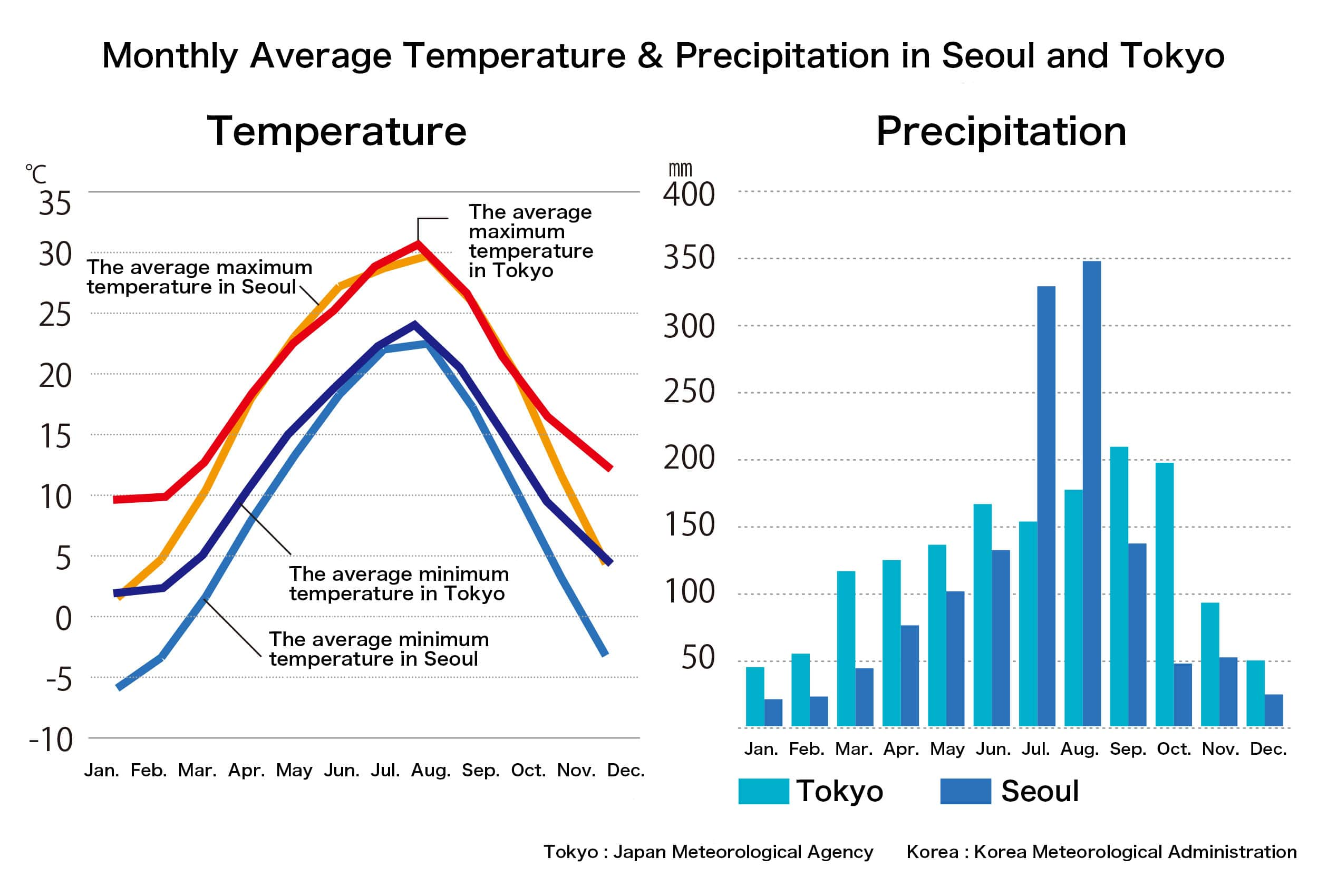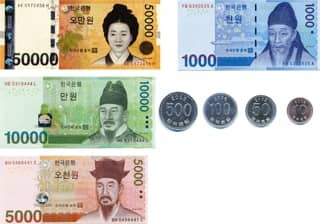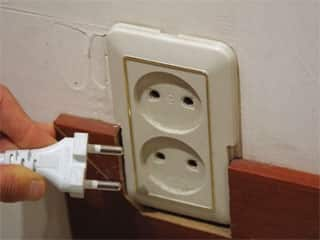- Please select the card you wish to join
-

Get your digital card immediately
No enrollment or annual fees
ANA Mileage Club Card
Earn more miles for your money
With credit function
ANA Card
-
Reservations
-
MILES
-
MILES
-
Login
-
Support
Seoul(Gimpo)
on December 5th, 2024 (JST) current information
Immigration and Visa
Visa
No visa is required for stays of up to ninety days for tourism, but visitors aged 18 to 64 must receive Korea Electronic Travel Authorization (K-ETA) by 72 hours before departure. (The Visit Korea Year campaign has temporarily removed the requirement for Japanese passport holders to apply for a visa, up until December 31, 2024.) Authorization is valid for 3 years and you do not generally need to be re-authorized during that period.
Passport
An existing validity period of at least 3 months from the time of entry is recommended when entering the country.
Quarantine
When visiting from Japan, it is prohibited to bring the following items into South Korea.
- [li] Animals, livestock products, meat, processed meat products such as ham, sausage, and jerky, animal products such as deer mushrooms and bones, processed egg products such as eggs, egg whites, and egg powder, milk, cheese, and butter, etc. Dairy products [/li][li] Seeds, raw plants, fruits, agricultural products (tomatoes, persimmons, citrus fruits, strawberries, cherries, grapes, etc. can be brought in with a plant hygiene certificate) [/li][li]Sat[/li][li] Live pathogens and pests (including pet insects) [/li]
Customs
Bringing in e-cigarettes
The scope of tax exemptions on e-cigarettes for travelers is up to 200 cigarettes or 20 ml of liquid. For all other types of e-cigarettes, up to 110 g.
For bringing and possession of tax-free cigarettes
- Liquor: 2 bottle (total volume less than 2L, total price under $400)
- Tobacco: 200 cigarettes or e-cigarette nicotine solution 20ML (with nicotine content less than 1%)
- Perfume: 100ml
Time difference and Daylight Saving Time
Time difference
There is no time difference between Japan and South Korea. Neither is daylight saving time observed, so the time in South Korea is the same as Japan throughout the year.
Climate
Climate
South Korea’s climate can be considered nearly identical to the northern to central regions of Honshu in Japan. There are four distinct seasons and a rainy season. Usually, visitors from Japan can wear the same type of clothing as they wore in Japan at the time of their departure. Winter is quite cold, so precautions against the cold must be taken. Generally, the disparity between cold and warm temperatures is more extreme than Japan.

Monthly Average temperature & Precipitation in Seoul and Tokyo
-
Monthly average temperature and precipitation
The average maximum temperature in Tokyo and Seoul, The average minimum temperature in Tokyo and Seoul
month The average maximum temperature in Tokyo The average minimum temperature in Tokyo The average maximum temperature in Seoul The average minimum temperature in Seoul Jan. 10℃ 2℃ 2℃ -6℃ Feb. 10℃ 2℃ 3℃ -4℃ Mar. 13℃ 5℃ 8℃ 0℃ Apr. 18℃ 10℃ 15℃ 5℃ May 23℃ 15℃ 24℃ 12℃ Jun. 25℃ 18℃ 27℃ 15℃ Jul. 28℃ 23℃ 28℃ 22℃ Aug. 31℃ 24℃ 30℃ 22℃ Sep. 27℃ 21℃ 26℃ 15℃ Oct. 23℃ 15℃ 20℃ 8℃ Nov. 17℃ 10℃ 13℃ 2℃ Dec. 13℃ 5℃ 4℃ -3℃ The average precipitation in Tokyo and Seoul
month The average precipitation in Tokyo The average precipitation in Seoul Jan. 50mm 30mm Feb. 60mm 40mm Mar. 120mm 50mm Apr. 130mm 80mm May 130mm 100mm Jun. 170mm 150mm Jul. 160mm 330mm Aug. 150mm 340mm Sep. 210mm 130mm Oct. 160mm 50mm Nov. 90mm 60mm Dec. 50mm 30mm
Currency and Exchange Rate, Tax, Currency exchange, Tip
Currency and Exchange Rate

South Korean banknotes and coins
The unit of currency is the won, abbreviated as W. As of March 18, 2024, W100 is equal to approx. JPY11. There are four denominations of banknotes: W50000, W10000, W5000, and W1000. There are seven types of coins: W500, W100, W50, W10 (new and old), W5, and W1.
Tax
Consumption activities are subject to a 10% value added tax (VAT). The minimum duty-free purchase amount was lowered to W15,000 in 2024. Foreign tourists can receive a tax refund by completing a procedure at a store with a TAX FREE symbol. You cannot get a refund for food and drink costs at restaurants that are not eligible for a tax refund. Note that some places are only open in a limited capacity or are closed entirely due to the pandemic or other reasons, and it is best to check before going.
Tip
Tipping is not required. A service charge is added in advance to expenses such as meal charges at upscale establishments and room fees at hotels. It is acceptable to tip when receiving a special or excessive service.
Voltage and plug
Voltage

A 220V outlet
In South Korea, the voltage is 220V and outlets are mostly the same shape as Europe, type SE (that also fit type C plugs). In Japan, the voltage is 100V and outlets are type A, so a plug adapter or transformer is needed when using Japanese electronics there. Japanese electronics that are also compatible with 220V only require a plug adapter and not a transformer.
Video and DVD
Video and DVD
The DVD region code is 2 in Japan and 3 in South Korea. When buying DVDs, get ones that are region free (all region). DVDs cannot be played on store-bought DVD players with a different region code. The region code can be changed on computers, but usually only up to 5 times.
Blu-ray system
For Blu-ray, both Japan and South Korea are region A, so Blu-rays bought in South Korea can be played normally in Japan.
International postage rates to Japan are as follows.
International Postal Fees to Japan
- Postcards sent by airmail are W430.
- Sealed Letters up to 10g sent by airmail are W570.
- Small packages(Airmail) : up to 100g W4,460, up to 200g W4,990, up to 1kg W10,680
- International small parcels: W9,900 for up to 1 kg and W15,500 for up to 2 kg by sea
- Airmail: W17,000 for up to 500 g, W18,000 for up to 1 kg, W19,500 for up to 1.5 kg, W21,000 for up to 2 kg
A separate postal fee is now required for international airmail. The fee is W100 per 100 g when sending airmail to Japan. You can buy stamps at post offices as well as some stationery shops. It is best to send parcels by EMS (Express Mail Service) from the post office (or from certain department stores and souvenir shops that will ship it for you).
Phone Call
How to phone
Telephoning Japan from South Korea
Telephoning Japan from South Korea
Ex. When calling (03) 1234-5678 or (090) 1234-5678
dial 001 or 002 or 005 or 008 or 00700 (International telephone identification numbers)
81 (Country Code, Japan )
3 or 90 (Remove the first 0 for area codes and mobile telephone numbers)
1234-5678 (Other parties telephone No.)
Telephoning South Korea from Japan
Telephoning South Korea from Japan
Ex. When calling Seoul (02) 123-4567
International Telephone Company No.
- 0033 (NTT Communications)
- 0061 (SoftBank)
- Not required for mobile phones.
010 (International Identification No.)
82 (Country Code, South Korea)
212(Area code, remove first 0)
1234-5678 (Other parties telephone number)
- Pre-registration to World Call is required for NTT DoCoMo.
Holiday / National holiday
Holiday / National holiday
South Korean national holidays include those according to the Gregorian calendar and those according to the lunar calendar. Dates of holidays according to the lunar calendar change each year. There are three: the Korean New Year (lunar New Year), Buddha's birthday, and Chuseok (similar to the Bon festival of the lunar calendar in Japan).
2025
- January 1: New Year's Day
- January 28 to 30: Solstice holidays (Solstice Day is January 29)
- March 1: March First Day (Independence Movement Day), Substitute Holiday March 3
- May 5: Buddha's Birthday(the same day for Children's Day in 2025)
- June 6: Memorial Day
- August 15: Gwangbokjeol (Liberation Day)
- October 3: Gaecheonjeol (National Foundation Day)
- October 5 to 8: Chuseok holidays (Chuseok Day is October 6)
- October 9: Hangeul Proclamation Day
- December 25: Christmas Day
Language
Language
The official language is Korean. Hangul, a system of phonetic characters created in the 15th century.
Business hours, etc
Business hours
Banks
Mon. to Fri. 9:00 to 16:00, closed on Sat., Sun., holidays. Money can be exchanged during business hours.
Post Office
Mon. to Fri. 9:00 to 18:00 (Banking services open to 16:30), closed Sat., Sun., holidays. Government offices are also closed on Saturdays.
Shops
Generally open around 10:00 to 20:00. Many buildings devoted to fashion-related shops are open until very late at night. Many shops close on the Chinese New Year and on Chuseok.
Restaurants
Generally open around 10:00 to 23:00. Many shops close on the Chinese New Year and on Chuseok.
Age Limit
It is prohibited to sell tobacco or alcohol or allow entry into casinos to persons under 19 years of age.


